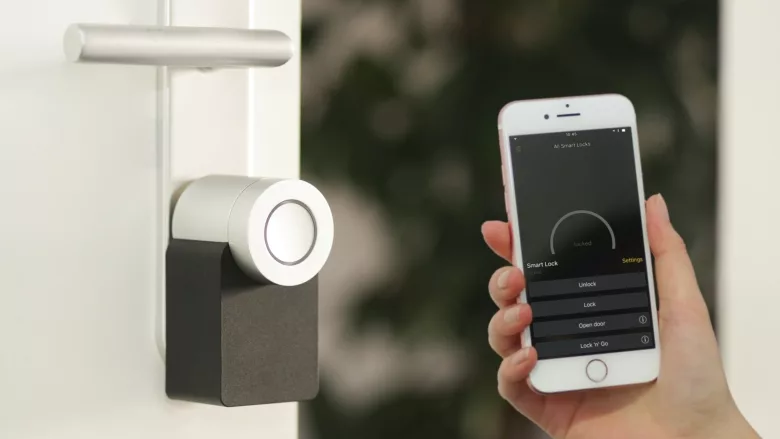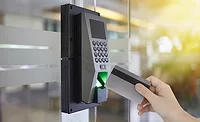How to choose the right access control system

Image via Unsplash
Selecting a physical access control system (ACS) can be a challenge for security teams. Understanding a system's capabilities, benefits and what is absolutely necessary to include in evaluations seems like a huge undertaking, especially to the non-savvy. However, this task isn’t as intimidating with a standard guideline.
Not every access control system is built equally. Yes, they are built for the same purpose, but each system has distinctive levels of access policies and restrictions. The requirements for organizations depend on the property and its need for security.
In this article, we won’t tell you which is the best ACS in the market. We only aim to inform you enough to be able to take this decision easily on your own.
Ironing out the fundamentals
What kind of access control policies, models and mechanisms are important to the organization? These parameters will help security leaders lay out a basic structure for their access control system.
Access control policies
These are security policies that define how and where access is to be restricted.
Access control models
Discretionary access control (DAC), role and/or rule-based access control (RBAC) and mandatory access control (MAC) — these are the main types of access control models.
Access control mechanisms
Access control mechanisms contain objects that send and receive access commands and grant authorization, such as RFID cards and biometric scanners.
Access control involves managing access to an organization's entire premises or any area in it. So, what security leaders fundamentally need to consider while choosing an access control system for their business is:
- External threats — Unaccounted visitors, people with malicious intents, etc.
- Internal threats — Tailgating, stolen IDs, attendance manipulation, etc.
- Critical assets — Documents, servers and computers, inventory, etc.
Hardware considerations
Think about the access points in the organization. How is a person supposed to gain access to any area? Security leaders will need to consider what would suit their building the best: biometric locks, card readers or another solution. For areas where there is no significant threat, security leaders can opt for standard smart locks that can be accessed through passwords. Hence, look for manufacturers or sellers that can customize access control solutions as per your organization's needs.
Security professionals should also avoid hardware systems that require a lot of restructuring or renovating inside their organization's premises unless the organization plans to install new locks everywhere. Remember, ACS should increase convenience too.
What is your security strategy?
The level of security an office needs will decide the hardware and its corresponding ACS. In a pharmaceutical office, many sensitive areas need restricted access, such as the research department. In an accounting firm, the place with all the client files becomes a high-security area. In an IT company, the server room is the sanctum sanctorum. In such cases, biometric ACS would provide a relatively higher degree of security.
For offices that do not deal with a lot of sensitive data or objects daily, a card-based or password-based access system can be implemented, allowing quick movement and access clearance.
Before looking for an ACS, security teams should analyze their building’s structure; map out the vulnerable and not-so-vulnerable areas; and create a tentative access control strategy. Prioritize a customized solution with a combination of biometric locks, card readers and smart locks.
Where to find the right fit
It is advisable to research a good fit before investing in an elaborate security framework. Also, look at the tenure of the manufacturer in the industry. Choose a vendor who has been in business for a long time and has an upgrading range of products. They should be well-versed with the latest technological developments.
A manufacturer that produces all the components of the ACS in-house will also be equipped to speedily resolve any issues with the system and provide training if necessary.
Finally, ask your colleagues and friends. Consumer feedback is very important when it comes to considering the after-sales service and performance of any product.
How adaptable is the ACS?
Technologies are evolving rapidly and new security solutions keep emerging. If, a few years down the line, the security team at an organization decides to upgrade their ACS, would their current framework allow that? Security leaders should always choose a system that is compatible with a wide range of devices and is adaptable to changing technologies.
Find out if an ACS provider is committed to managing updates to the existing framework and providing sufficient support for the new system. Security professionals should also have a plan of their own regarding the changes their business might undergo in the near future.
What would it cost?
After everything, security budget will be the deciding element regarding the right access control system for an organization. Take a good amount of time to assess your business' budgetary requirements. Talk to the manufacturer or seller about the maintenance and upgrade costs in the long run. Consider the ROI before buying — it is according to your expectations and satisfaction?
Buying an access control system is a huge investment, and this system would become an inseparable part of an organization's day-to-day operations. It is advisable to not look for the lowest-priced option, but rather the one that gives an organization the most out of their investment.
This article originally ran in Security, a twice-monthly security-focused eNewsletter for security end users, brought to you by Security Magazine. Subscribe here.
Looking for a reprint of this article?
From high-res PDFs to custom plaques, order your copy today!







